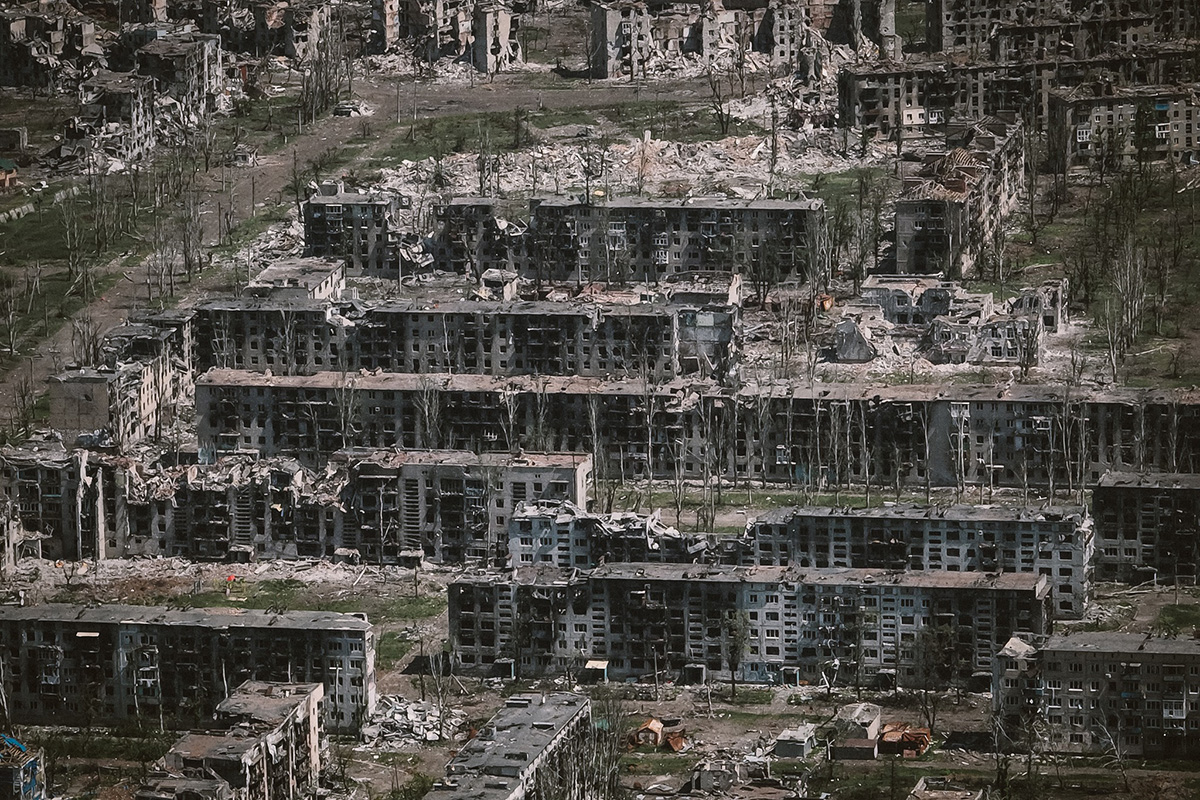“Collecting body parts”: Ukrainian woman recounts harrowing Bakhmut escape
Svitlana Klymenko remembers some of the dark scenes she witnessed in the city of Bakhmut in the early days of Russia’s full-scale invasion when the 44-year-old was sheltering in a cramped basement with her husband and teenage daughter.
“One day we found a boy, he was three years old, he came out of the basement to get his mother, they were my neighbors,” recalls Klymenko, who suffers from epilepsy and a brain issue known as encephalopathy. Then, she added tearfully, there was an explosion and panic.
“Where is Vladik?” she remembers his mother shouting. The little boy had wandered outside. His body parts were strewn in the vicinity. “We were collecting his body in pieces (to put) in a black bag.”
Situated in the Donetsk region, Bakhmut has seen intense fighting throughout the full-scale war. Surviving there in the early days after Moscow’s forces invaded was not easy.
“It was getting harder to get medical help every day,” Klymenko said. “There were fewer and fewer people in the city. Some (had) left, and some were killed by bombs, the worst thing was to see children (suffering).”
Klymenko said it was becoming increasingly dangerous to stay in the basement of their house and that she was unsure what to do. But then she dreamt of her late father, who she says told her: “Pack your things and get out of there.”
“My father is like a guardian angel,” she said. “I always listen to him if I have a dream.”
The family gathered their few belongings and hurried to an open basement a few blocks away. “There were about 30 of us in the bomb shelter, singing songs to keep our morale up,” Klymenko said.
“The water in the city quickly ran out, so we had to melt snow and defrost the refrigerator and strain it through cheesecloth to have drinking water,” she recalls. The family survived that cold, perilous month by eating instant noodles every day.
A few days later, Klymenko went to their family home hoping to take some personal belongings. But their house had been hit by an airstrike and was destroyed.
“The house just fell apart, all 4 entrances, our apartment was on the 5th floor. We were digging under the rubble and looking for some things,” she said.
Despite the dangers, the family did not want to leave their home city.
That is not an uncommon feeling for people living in active war zones, said Ukrainian psychologist Olena Poludyona.
“People are divided into those who are getting used to the shelling and those who are not,” she said. “As someone gradually gets used to (shelling), the threshold of sensitivity decreases. People adapt, but this does not mean that they are not stressed and do not have PTSD (post-traumatic stress disorder).”
Klymenko and her family – including some neighbours – eventually had enough of the precarious situation and planned to leave Bakhmut for Kramatorsk. “We were already tired of the rockets, the children were also tired of the shelling, and we were scared … so we decided to leave,” she said.
As the small group tried to flee Bakhmut by car, things took a tragic turn for the worse: a missile struck nearby.
“I looked at Kateryna, my neighbor, and asked where she was,” she recalls, with a nervous smile. “Then, we realized that parts of her body had been scattered in different directions. She was pregnant.”
Poludyona, the psychologist, says that many people can react to such traumatic events with smiles as part of a defense mechanism.
“It’s a defense mechanism against pain, and in such cases, psychological help is needed,” she said. “A person needs to be able to open up and cry in a safe environment, to get rid of these emotions, which can then form persistent PTSD.”
In Kramatorsk, the Klymenko family arrived at a crowded train station and waited to board a train headed to Lviv in western Ukraine, where the war had not been as intense as in the east. After arriving, Klymenko, her teenage daughter, and her mother went to visit Klymenko’s 23-year-old daughter who had fled to Poland.
Klymenko later moved to Romania’s capital Bucharest with her youngest daughter, where they are trying to heal from their experience, and remain hopeful about the future – despite Bakhmut being almost unrecognisable after intense fighting there.
“I still keep the keys to our apartment and the key to my mother’s,” she said. “My husband says to throw them away, but I can’t. They warm my soul that this war will end and our Bakhmut will be rebuilt and we will live as before.”


